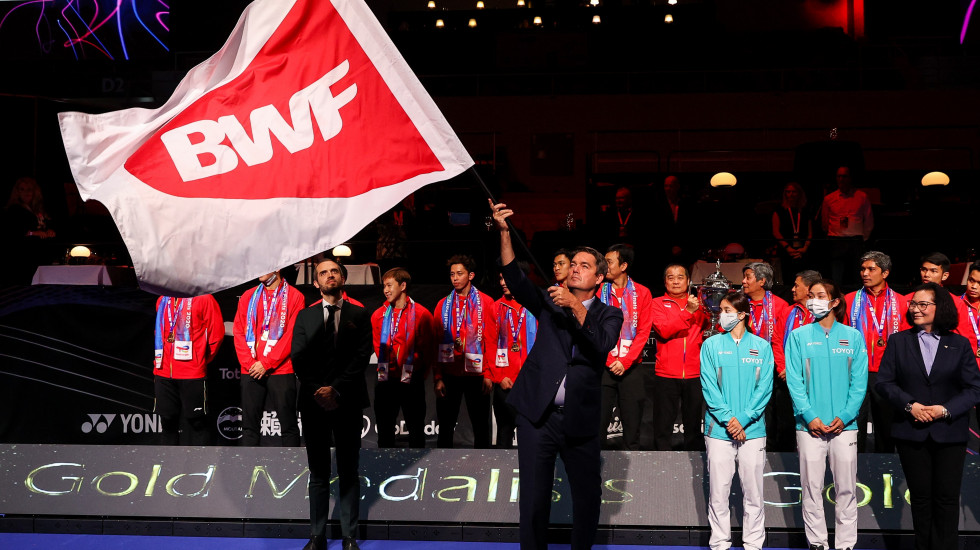The Badminton World Federation (BWF) has again shown it continues to lead the way in governance practice, ranking in the first bracket with six other International Federations (IF) in the Fourth Review of International Federation Governance (2021-2022) released by the Association of Summer Olympic International Federations (ASOIF) this week.
BWF is third overall with a score of 181 out of a possible 200 and is placed alongside International Federations for athletics, cycling, equestrian, football, rugby, and tennis in the top group.
BWF is also ranked first for IFs with between 20-49 staff and third for IFs with annual revenue between 20-50 million Swiss Francs.
It is the second consecutive third place overall ranking for BWF, showing consistency in governance practice. This year’s score is seven points higher than the mark achieved in the Third Review.
BWF President Poul-Erik Høyer said: “This is another promising indicator that BWF is performing above average at a governance level among all International Federations. We take governance innovation seriously and it’s good to see our efforts are recognised globally.
“It’s generally accepted that larger federations tend to have better governance delivery due to the resources available to them. Yet, BWF as a medium-sized IF based on staffing and annual revenue, continues to demonstrate a high capacity to maintain strong performance in governance practice.”

BWF President Poul-Erik Høyer.
To meet the criteria for the top bracket, BWF had to sit within a certain threshold of total ranking points (175 – 189) calculated across the five areas surveyed:
- Transparency
- Integrity
- Democracy
- Development
- Control Mechanism
The report indicates that BWF remains at the upper limit of scores for transparency and development, while markedly increasing its democratic performance indicators thanks to notable enhancements to the diversity of the Executive Committee.
Click here for the Fourth Review of International Federation Governance.
Governance innovation is an important focus in BWF’s Strategic Plan 2020 – 2024 with a key goal to “provide leadership in good governance practices”.





























